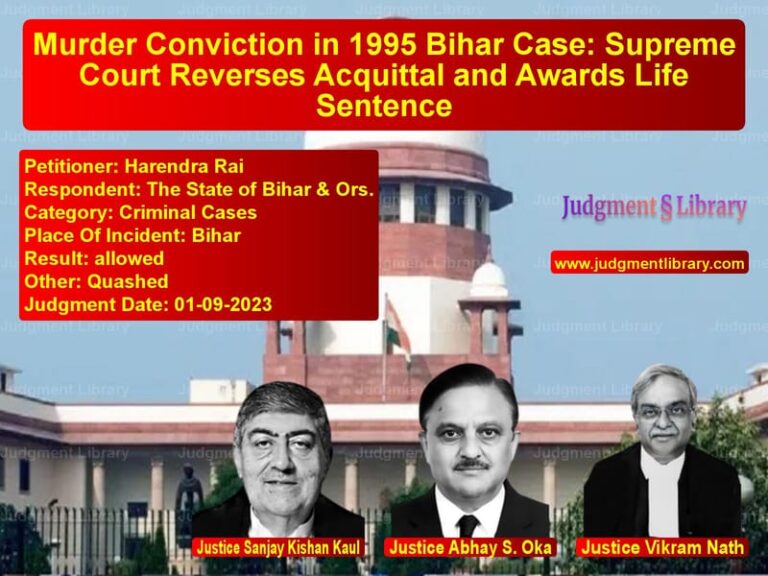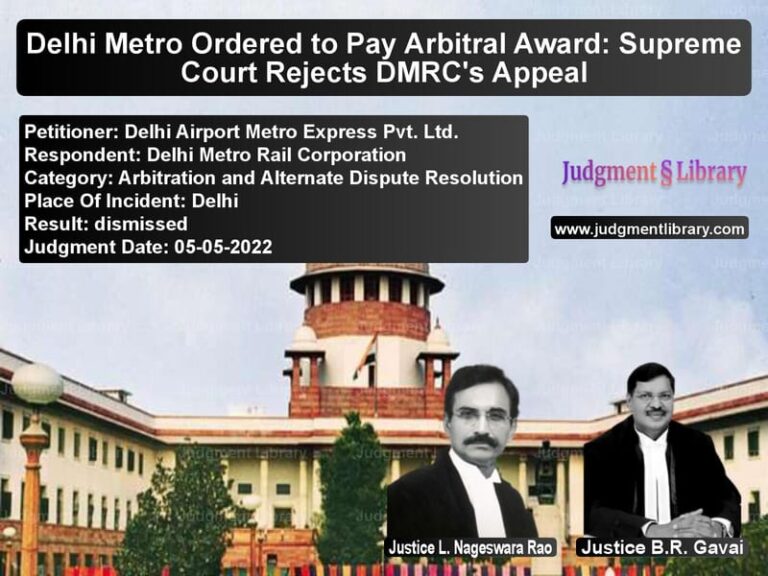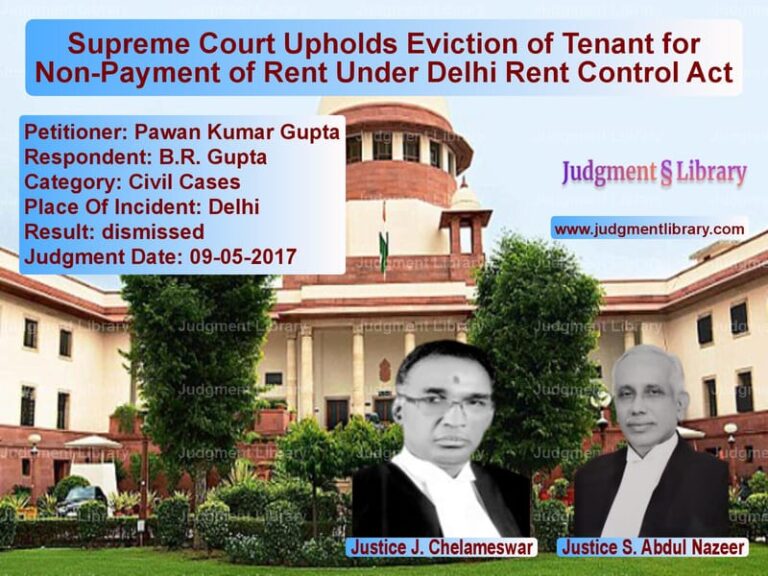SC Quashes UMC Technologies’ Blacklisting by Food Corporation of India
The Supreme Court of India, in a significant ruling, quashed the blacklisting of UMC Technologies Private Limited by the Food Corporation of India (FCI). This case revolved around allegations of a leaked question paper in a recruitment examination and raised important questions about the principles of natural justice and procedural fairness in blacklisting decisions.
Background of the Case
The dispute arose from a recruitment examination conducted by UMC Technologies on April 1, 2018, to hire watchmen for the FCI. On the same day, the Special Task Force of the Bhopal Police arrested 50 individuals in Gwalior who were found in possession of handwritten documents suspected to contain the leaked examination questions.
Following the incident, FCI issued a show-cause notice to UMC Technologies, alleging a breach of confidentiality and negligence in conducting the examination. The company responded, denying any wrongdoing and highlighting discrepancies between the seized documents and the actual question paper. Despite this, FCI terminated UMC Technologies’ contract and blacklisted the company for five years from participating in future tenders.
Arguments by the Petitioner (UMC Technologies)
UMC Technologies challenged the blacklisting decision, arguing the following:
- The company was not responsible for the alleged question paper leak.
- The show-cause notice failed to specify that blacklisting was being considered as a penalty.
- The FCI did not grant a fair opportunity to present its defense before issuing the blacklisting order.
- The five-year blacklisting order was disproportionate and severely affected the company’s ability to conduct business.
Arguments by the Respondent (Food Corporation of India)
FCI defended its decision, asserting that:
- The company’s failure to ensure the confidentiality of the question paper compromised the integrity of the recruitment process.
- Blacklisting was necessary to prevent future breaches and protect public trust in FCI’s recruitment procedures.
- UMC Technologies was aware that it could be blacklisted for non-compliance with contractual obligations.
Supreme Court’s Observations
The Supreme Court examined the case and made the following key observations:
1. Principles of Natural Justice
The Court emphasized that blacklisting has serious consequences, effectively barring a company from government contracts. As such, the affected party must be given a fair opportunity to respond to allegations before a blacklisting decision is made.
Quoting from Gorkha Security Services v. Government of NCT of Delhi, the Court reiterated that:
“A show-cause notice must specify the proposed action clearly, allowing the affected party to present a meaningful defense.”
The Court found that FCI’s show-cause notice merely mentioned the alleged breach but did not explicitly state that blacklisting was being considered as a possible consequence.
2. Lack of Clarity in Show-Cause Notice
The Court observed that the show-cause notice issued to UMC Technologies failed to fulfill legal requirements. While it accused the company of negligence, it did not explicitly warn that blacklisting was a possible penalty.
The Court noted:
“Had FCI clearly mentioned blacklisting in the show-cause notice, UMC Technologies could have provided a focused defense. The lack of specificity in the notice denied the appellant an adequate opportunity to be heard.”
3. Disproportionate Punishment
The Supreme Court found that the five-year blacklisting order was excessive and disproportionate. While contractual breaches must have consequences, the Court emphasized that penalties should be reasonable and fair.
Final Judgment
Based on these observations, the Supreme Court ruled:
- The blacklisting order violated the principles of natural justice and was, therefore, invalid.
- FCI failed to provide a legally adequate show-cause notice.
- The five-year blacklisting order was quashed, restoring UMC Technologies’ eligibility for future tenders.
Conclusion
This ruling reinforces the importance of procedural fairness and transparency in government blacklisting decisions. The judgment serves as a critical precedent, ensuring that public authorities cannot impose severe penalties without adhering to the principles of natural justice. By upholding the right to a fair hearing, the Supreme Court has strengthened legal safeguards for businesses engaging in government contracts.
Petitioner Name: UMC Technologies Private Limited.Respondent Name: Food Corporation of India & Anr..Judgment By: Justice S. Abdul Nazeer, Justice B. R. Gavai.Place Of Incident: Madhya Pradesh, India.Judgment Date: 16-11-2020.
Don’t miss out on the full details! Download the complete judgment in PDF format below and gain valuable insights instantly!
Download Judgment: UMC Technologies Pri vs Food Corporation of Supreme Court of India Judgment Dated 16-11-2020.pdf
Direct Downlaod Judgment: Direct downlaod this Judgment
See all petitions in Corporate Compliance
See all petitions in unfair trade practices
See all petitions in Company Law
See all petitions in Judgment by S. Abdul Nazeer
See all petitions in Judgment by B R Gavai
See all petitions in allowed
See all petitions in Quashed
See all petitions in supreme court of India judgments November 2020
See all petitions in 2020 judgments
See all posts in Corporate and Commercial Cases Category
See all allowed petitions in Corporate and Commercial Cases Category
See all Dismissed petitions in Corporate and Commercial Cases Category
See all partially allowed petitions in Corporate and Commercial Cases Category







